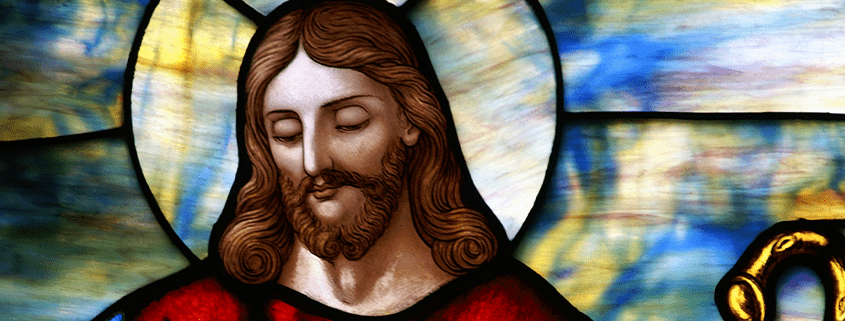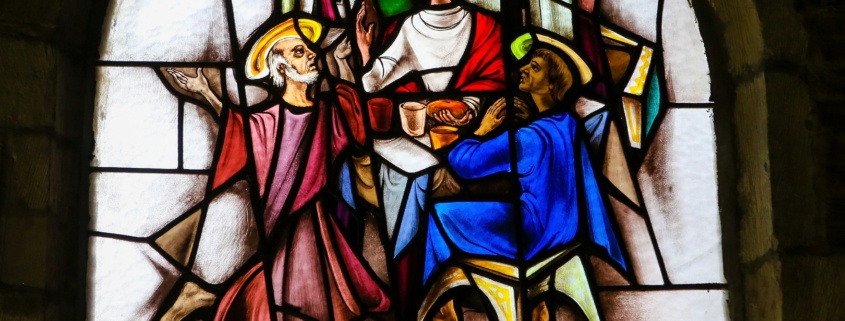The Very Revd Prof. Martyn Percy: Dean of Christ Church, Oxford gave the following sermon during our Church at Home online service on the Sixth Sunday of Easter, 2020
‘If you love me, you will keep my commandments. And I will ask the Father, and he will give you another Advocate to be with you for ever. This is the Spirit of truth, whom the world cannot receive, because it neither sees him nor knows him. You know him, because he abides with you, and he will be in you. I will not leave you orphaned; I am coming to you. In a little while the world will no longer see me, but you will see me; because I live, you also will live. On that day you will know that I am in my Father, and you in me, and I in you. They who have my commandments and keep them are those who love me; and those who love me will be loved by my Father, and I will love them and reveal myself to them.’ – John 14:15-21 New Revised Standard Version, Anglicised (NRSVA)
“I Will Not Leave You Orphaned; I Am Coming To You”
Fifty years ago, one of my favourite films was released. It is a movie for all ages, and has enjoyed enduring popularity. The year was 1970; the film is The Railway Children. I remember going to see it at the Crosby Odeon with my grannie. I loved the film for several reasons. Jenny Agutter, naturally! And Bernard Cribbins, playing the genial role of Perks, the railway-worker.
The Railway Children concerns a family who move out from London to a house in the shires near a railway. Their move was forced upon them, after the father – an intelligent, high-ranking civil servant – was unjustly imprisoned for espionage, but is eventually exonerated.
In their new environs, the three children – ‘Bobbie’ (Jenny Agutter), Peter and Phyllis – befriend an older gentleman who normally takes the morning train from near their home. He becomes an unlikely hero, for in his empathy for the children, is moved to help prove their father’s innocence, thereby reuniting the family. Before the father is freed, however, the family care for a Russian exile who came to England looking for his lost family. And the railway family also take in Jim, the grandson of the old gentleman.
For a good part of the film, the children are effectively orphaned. The climax is achingly beautiful. The train pulls in and stops, and Bobbie, alone, stands on the platform and waits, not knowing if her father is there. The entire scene is consumed in the steam and smoke of the locomotive. And out of the clouds, the father emerges. As the gospel has it today: “I will not leave you orphaned; I am coming to you.”
When we think of orphans, we instinctively think of children without parents. In fact, the English word ‘orphan’ comes from the Greek orphanos, meaning merely ‘bereaved’, ‘bereft’ or ‘deprived’. In English, it has come to signify a child losing one or both parents. Of course we are always somebody’s child. Unless we predecease our parents, we will all know what it is to be orphaned: to be without our father or mother. We can be an orphan at any age.
This pandemic has so far led to over 30,000 deaths in our land, and that number will continue to climb. That means there are hundreds of thousands of new orphans today; and a great many more family, friends and colleagues are also sadly bereft. We only understand the gift of who we truly loved when we experience their loss.
So on this Sixth Sunday of Easter, we wait for another loss, even after the crucifixion. For after the resurrection of Jesus comes the Ascension. He leaves, and returns to the Father. The disciples will bereft once more – orphaned. Yet the scriptures promise us an end more like The Railway Children.
In the gospels Jesus refers to the Holy Spirit as “the Comforter”, and it is this name that most closely associates the maternal and paternal comforting care that Jesus gives – so abundantly in his ministry – with what is to come after he has gone. The gospels record Jesus saying “do not worry” or “do not be afraid” over and over again. Seventy times, in fact. Yes, seventy.
Jesus says it a lot. Don’t be afraid of the storm, or of sinking in this boat. Do not worry about lack of food or clothes. Do not worry about those who hate you. Do not worry about death. “Do not be afraid…I am with you”, says Jesus. Time and time again.
As a child, I grew always knowing I had been adopted. It has had, and continues to have, a profound influence on my personhood, ministry and theology. Deeply imprinted in my soul and psyche is the knowledge that, though I was, literally bereft as a baby, I was not in fact abandoned. I was blessed with good and loving parents, who came for me, and took me home. Interestingly, another meaning of the word ‘orphan’ is quite general – ‘to change allegiance; passing from one status to another’. That was my experience. My status moved from being an “unwanted baby” to becoming a much-cherished, much-wanted, much-loved…son.
Many years later, as an adult, my parents told me that, in fact, I had never been “un-wanted”. My birth mother simply could not keep me. But she had held me for the first weeks of my life, and only gave me up when she handed me over, in person, to the couple that came for me – my parents. My ‘new normal’ was to learn that I had always been held and cherished.
The first Christians cared for and cherished orphans. The scriptures give many examples of infants being adopted and raised by folk that are not their biological parents. The early church was called to be an adopting, caring and comforting community for everyone – especially the neglected, marginalised and bereft. The words Jesus speaks to us are what he calls us to proclaim and practice to the rest of humanity today: “we will not leave you orphaned or bereft; we are here for you; we are coming to you; do not be afraid; God never leaves any of us.”
So what of here and now? I recall an NHS advertising poster some years ago to recruit new nurses. The advert pictured a nurse cradling a new-born baby, and the caption read: “the first few minutes of life can be critical”. But someone had daubed a bit of graffiti underneath: “…and the last few moments can be a bit dicey too.”
This is a fearful, tender time in our nation. Cradling, holding and caring for others at the beginning and end of life – and for all that bit we call “the middle” (perhaps three-score-years-and-ten?) – is where our calling as the church must be. Remembering the words of Jesus, which have been, are being, and will be fulfilled: “I will not leave you orphaned or bereft; I am with you. Do not fear. I am coming to you.”
Alleluia, Amen.




